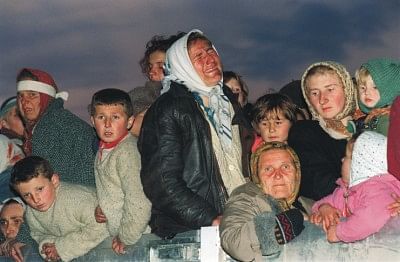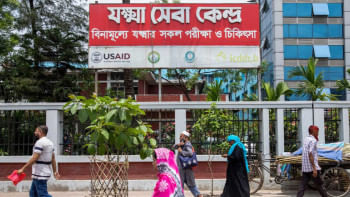'The butcher of the Balkans' on the run

In this photo taken on March 29, 1993 a woman refugee from the Serb-besieged Bosnian enclave of Srebrenica bursts into tears upon her arrival in Tuzla as part of some 2000 fellow refugees, fleeing the Bosnian Serbian forces in the biggest UN convoy. Photo: AFP
For nearly 16 years Ratko Mladic evaded international justice, first living openly in Belgrade before going into hiding after the fall of his protector, Serb strongman Slobodan Milosevic.
His arrest Thursday seemed almost anti-climactic. While many believed he was holed up in remote mountains with a few of his most trusted associates, ready to kill anyone who came to arrest him, he was finally caught alone, in his pyjamas, without using the two guns he had with him.
According to newspaper reports, Serbian intelligence officers and a special war criminals tracking team swooped in the early hours of Thursday on several houses in Lazarevo, a village around 80 kilometres north of Belgrade, in the Vojvodina plains close to the Romanian border.
The houses were owned by relatives of Mladic and had been under surveillance for the past two weeks, sources told AFP.
The media reported that the former general has difficulty moving, apparently due to a series of strokes.
Mladic, the Bosnian Serb military chief during the 1992-95 Balkans wars, was indicted for genocide, war crimes and crimes against humanity by the International Criminal Tribunal for the former Yugoslavia (ICTY) in 1995.
The general known as "the butcher of the Balkans" remained in the Serb-controlled part of Bosnia after the war, threatening a bloodbath if anyone attempted to detain him.
He later moved to Belgrade and lived openly there until the ouster of Milosevic in October 2000, visiting cafes and restaurants and attending football matches.
After the fall of his ally -- who was to die in prison while being tried by the ICTY -- Mladic vanished with the help of former military aides, who moved him from flat to flat in the capital, where he rarely went outdoors, according to Serbian officials.
There were also persistent reports that he was being moved between different military barracks across the country.
He is also suspected of seeking refuge in monasteries.
Earlier this year his family tried to get him officially declared dead, with his wife saying she had not seen him since 2003, but the petition was turned down.

 For all latest news, follow The Daily Star's Google News channel.
For all latest news, follow The Daily Star's Google News channel. 



Comments